Hunt debuts recyclable carbon technology in high end gravel wheelsets
British wheel brand Hunt lays the foundations for a move toward recyclable wheelsets
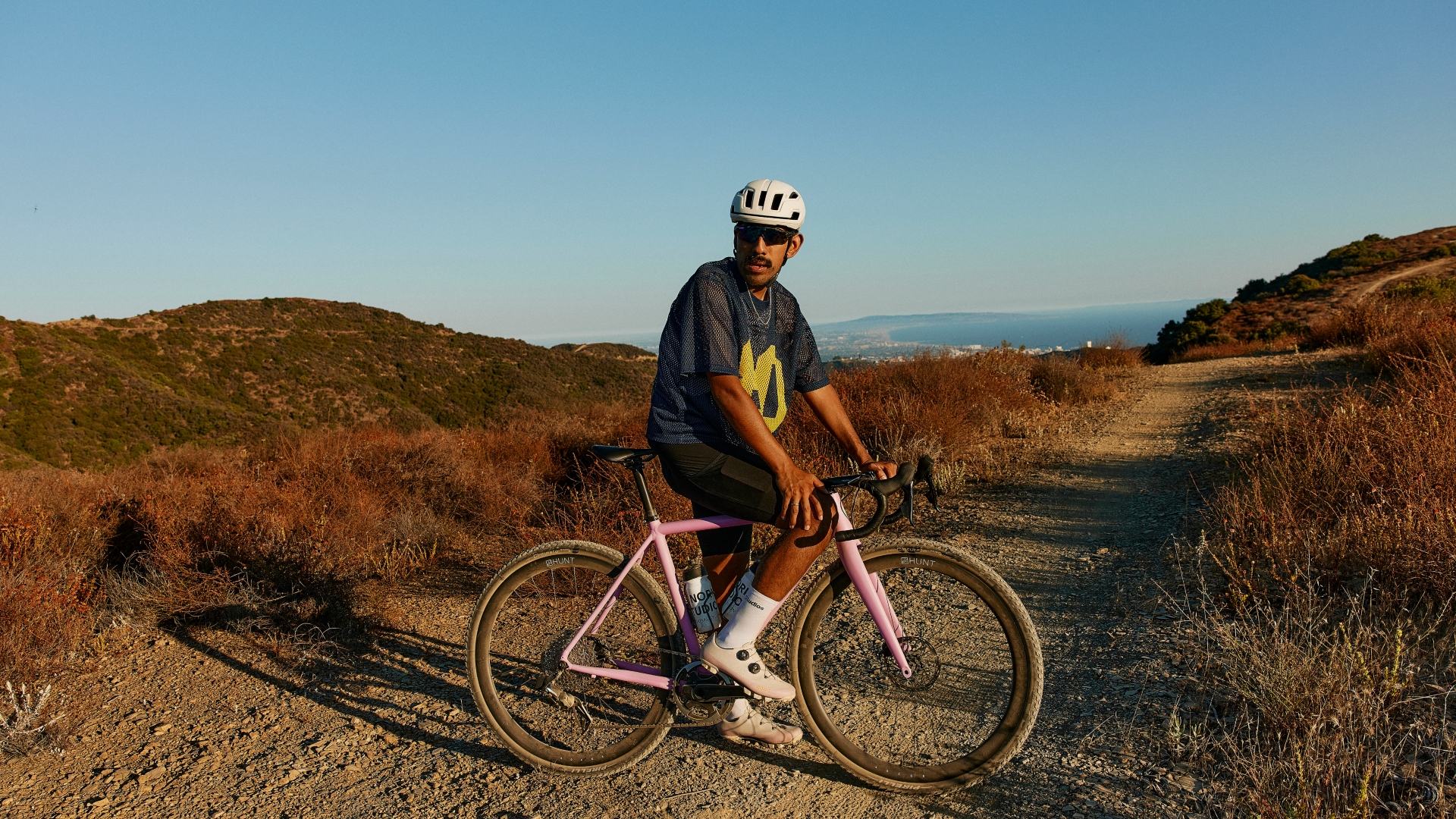

Hunt Wheels has announced the release of two wheelsets that are now utilising carbon fiber technology which will allow products to be recycled at the end of their lives.
Dubbed H_Cyclo, the technology uses a different type of thermoset resin that can be broken back down into resin and carbon strands in a far less energy-intensive manner. Initially, the technology has been debuted on Hunt's 40 Carbon Gravel Race wheels, and their dynamo counterparts, with plans to expand this across the brand going forward.
The technology was first developed to enable the recycling of large format glass fiber wind turbine blades, however, this is the first time the technology has been used in wheelsets in the bike industry.
It won't be possible to re-use the carbon to make more wheels, with Hunt still working on a 'next step', but smaller parts such as tyre levers or bottle cages would be attainable. Whilst materials used make up a small part of the overall carbon footprint of a wheelset, it's certainly a positive step for an industry seeking improvements in sustainability.
Recycling will also be incentivised through a discount program on new wheels when a H-Cyclo product is sent back to Hunt for recycling.
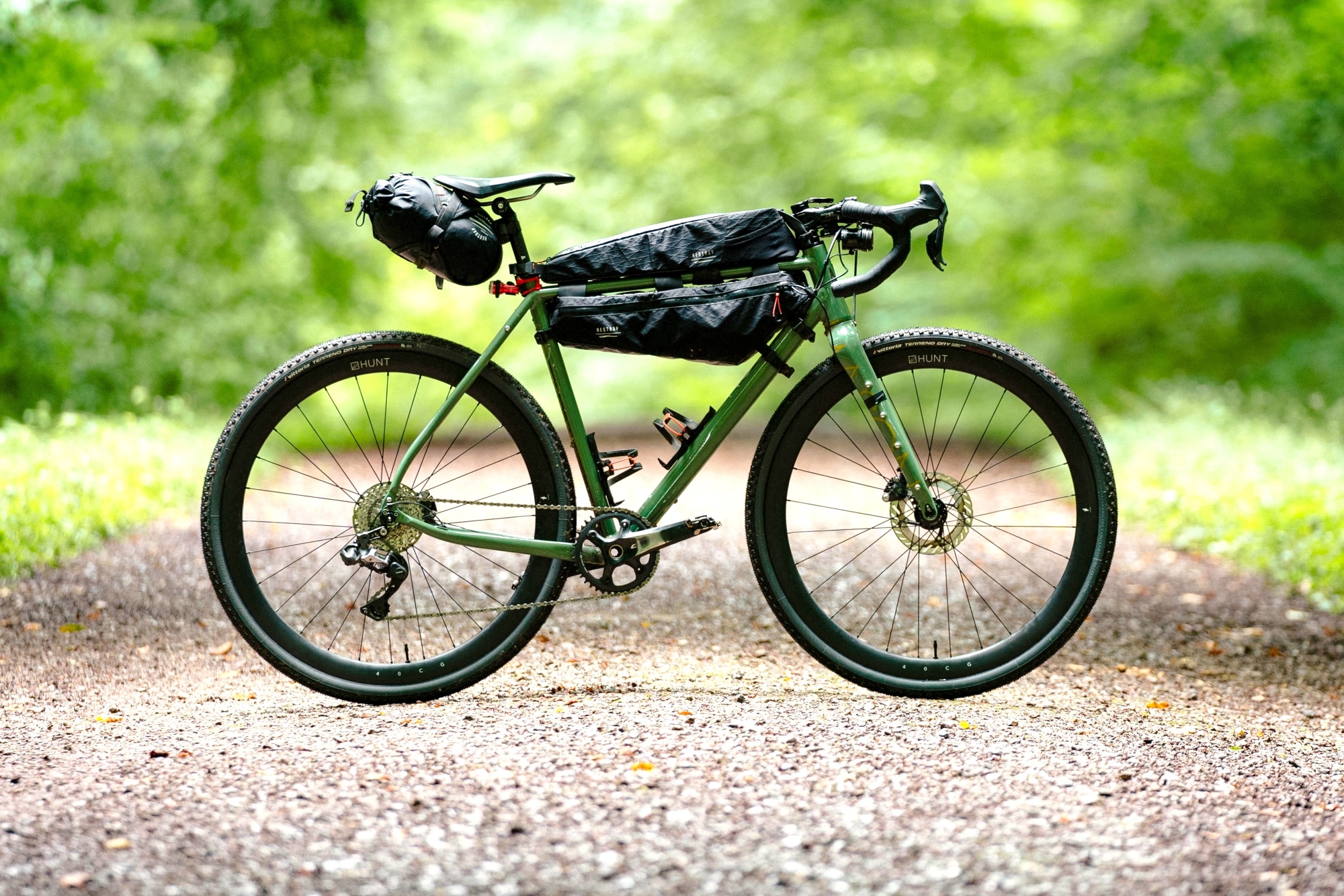
Hunt's 40 Carbon Gravel Dynamo wheels are popular among the Hunt range with bike packers wanting hastle free light systems
How does H_Cyclo work?
First shown off at Eurobike, Hunts H_Cyclo technology works by using a different type of resin than standard carbon fiber manufacturing.
During traditional carbon fiber manufacturing, pieces of carbon fiber pre-preg are laid out in a mold and then cured at very high temperatures. Pre-preg carbon fiber is a common term for reinforcing carbon strands impregnated with a resin - invariably epoxy.
Thermoset carbon fiber molding is the most common manufacturing process in the cycling industry and one that generally yeilds the highest strength-to-weight ratio - the trouble? Epoxy is a thermoset resin which is very hard to recycle.
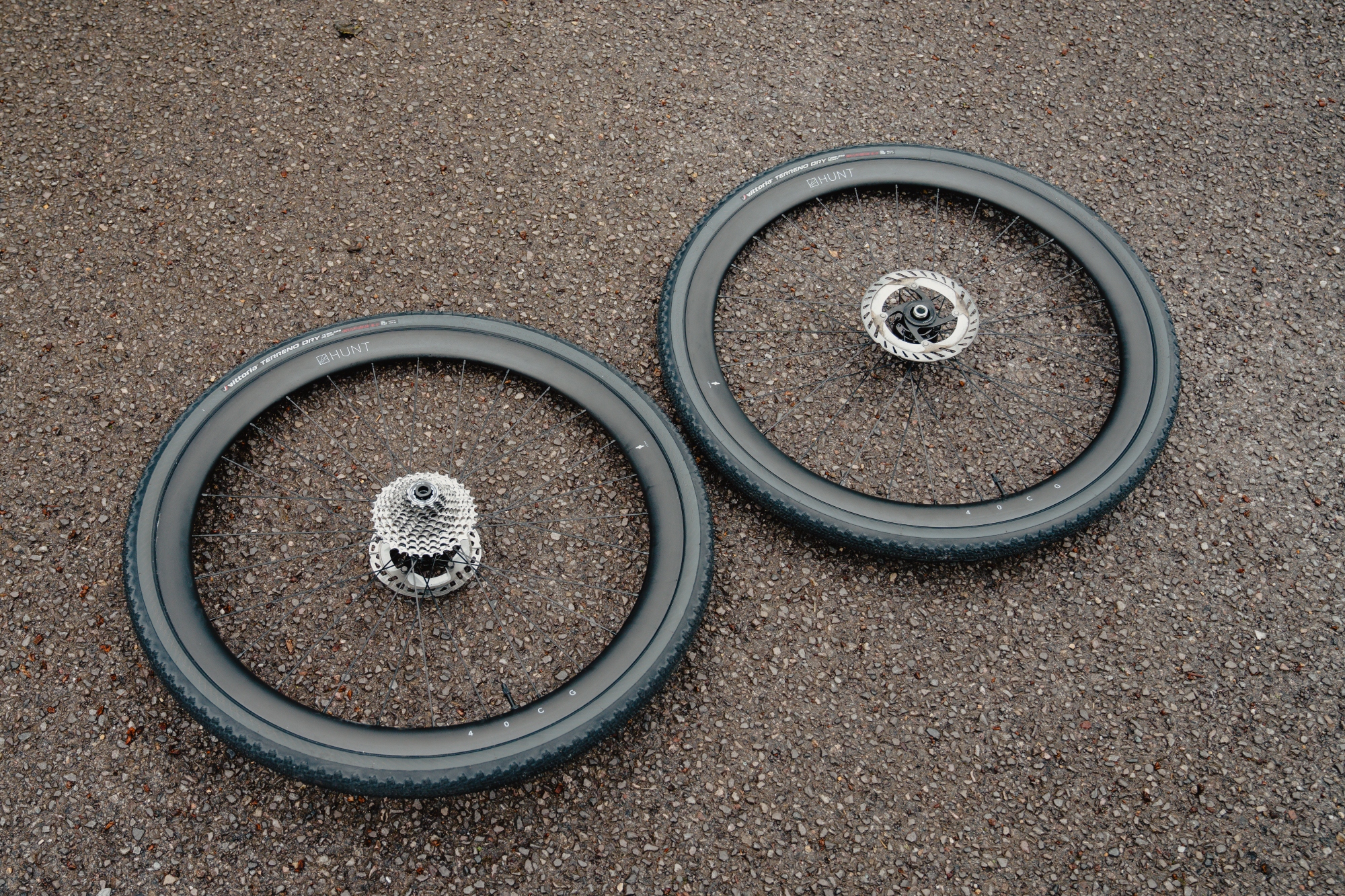
The wheels are identical to the naked eye, with the same finish as the standard wheels
Hunt's H_Cyclo process, by contrast, uses a different kind of thermosetting resin that Hunt says can be separated from the carbon fibers using a chemical solution at the end of a product's life.
Hunt claims that this new thermoset resin reacts in a very similar way to epoxy, meaning it can provide the same strength and durability. Crucially, it also means Hunt can use the same molds, which presumably makes this process far more attainable from a cost perspective. And if Hunt's claimed weights are to be believed, it does look to be the same - 1431g for the standard 40 Carbon Gravel Race wheelset, and the exact same claimed figure for the H_Cyclo equivalents.
When the wheels finally give up the ghost, be it when you upgrade, or have to retire your hoops because of an accident, the wheels are broken down using a chemical solution called Cleaver. With the use of Cleaver, some heat, and agitation, the two components can be separated in such a way that both resin and carbon fiber strands can be re-used.
Incentivised recycling
To try and get consumers on board with the program, Hunt has also invested in services that make the recycling process as easy as possible, and even save you some money on new wheelsets.
The brand says it will offer a free recycling collection service for all H_Cyclo wheels at the end of life or in the event of a crash replacement, where wheels will be sent to one of three recycling facilities available by 2026, in both Asia and Europe. If your wheels need recycling before then, Hunt will store them until recycling can take place
On top of this, Hunt is also offering up to £250 off a new wheelset when returning H_Cyclo wheelsets at the end of their lives.
Available wheelsets
As previously mentioned, Hunt is initially kicking things off by introducing the technology to just two of its wheelsets, the Hunt 40 Carbon Gravel Race H_Cyclo, and the 40 Carbon Gravel Dynamo H_Cyclo.
The wheels themselves feature a 40mm rim depth, with a wide 25mm internal rim width, and 30mm external rim width. Just like the non-H_Cyclo counterparts, the new Carbon Gravel Race wheels feature straight-pull Pillar PSR Xtra 1420 aero butted spokes, while the dynamo setup features equivalent J-bend spokes.
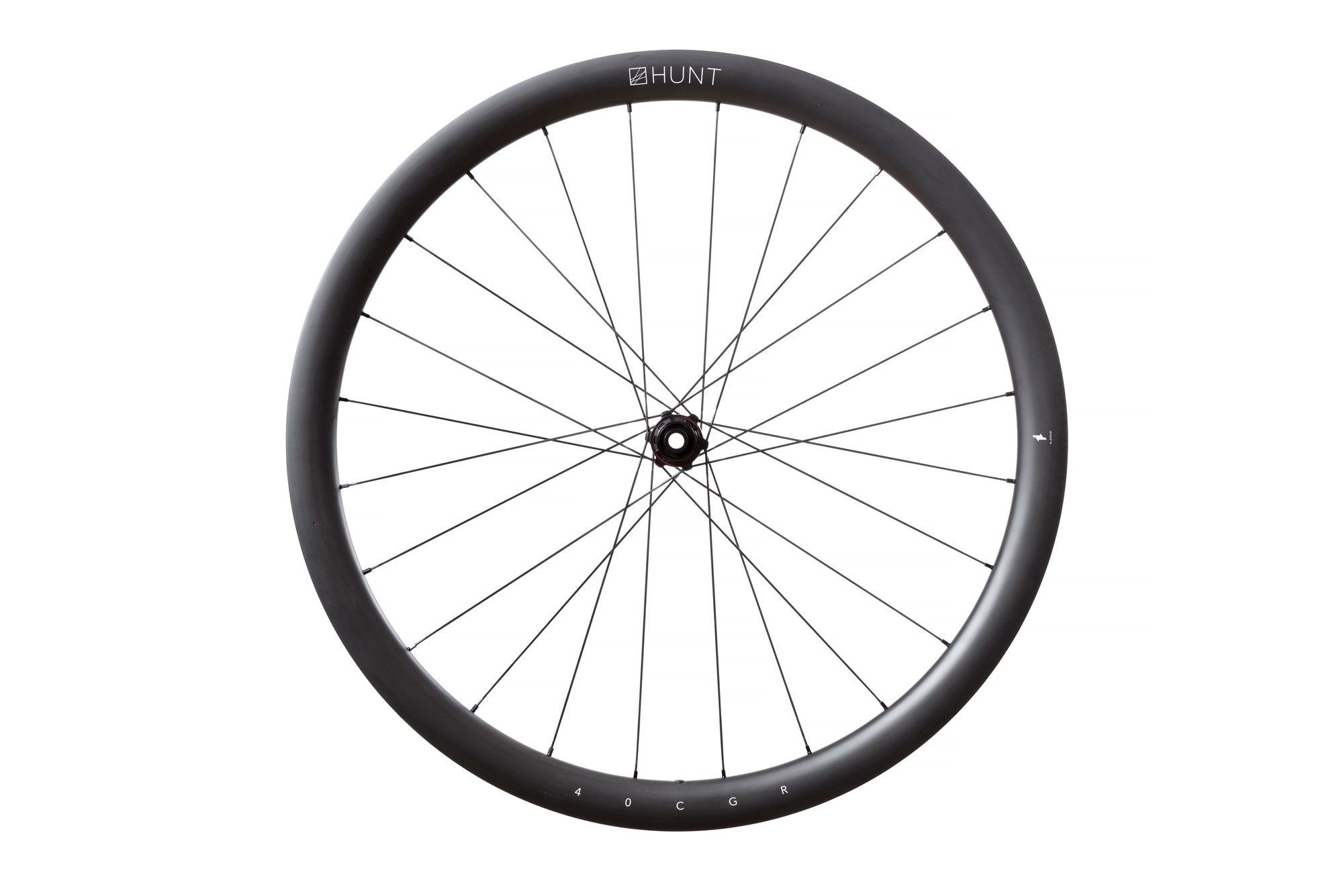
The wheels will come out of the same mold as the standard Hunt 40 Carbon Gravel Race wheelset
Both wheelsets feature Hunt's H_Ratchet 40T DBL hubs, with a low 9 degree of engagement, and dual 40-tooth ratchet rings. Rolling duties are handled by sealed precision cartridge bearings.
The Dynamo wheelset features a SON 28 Dynamo up front, with alloy dust shields, rubber lip seals, all complete with a 5 year warranty.
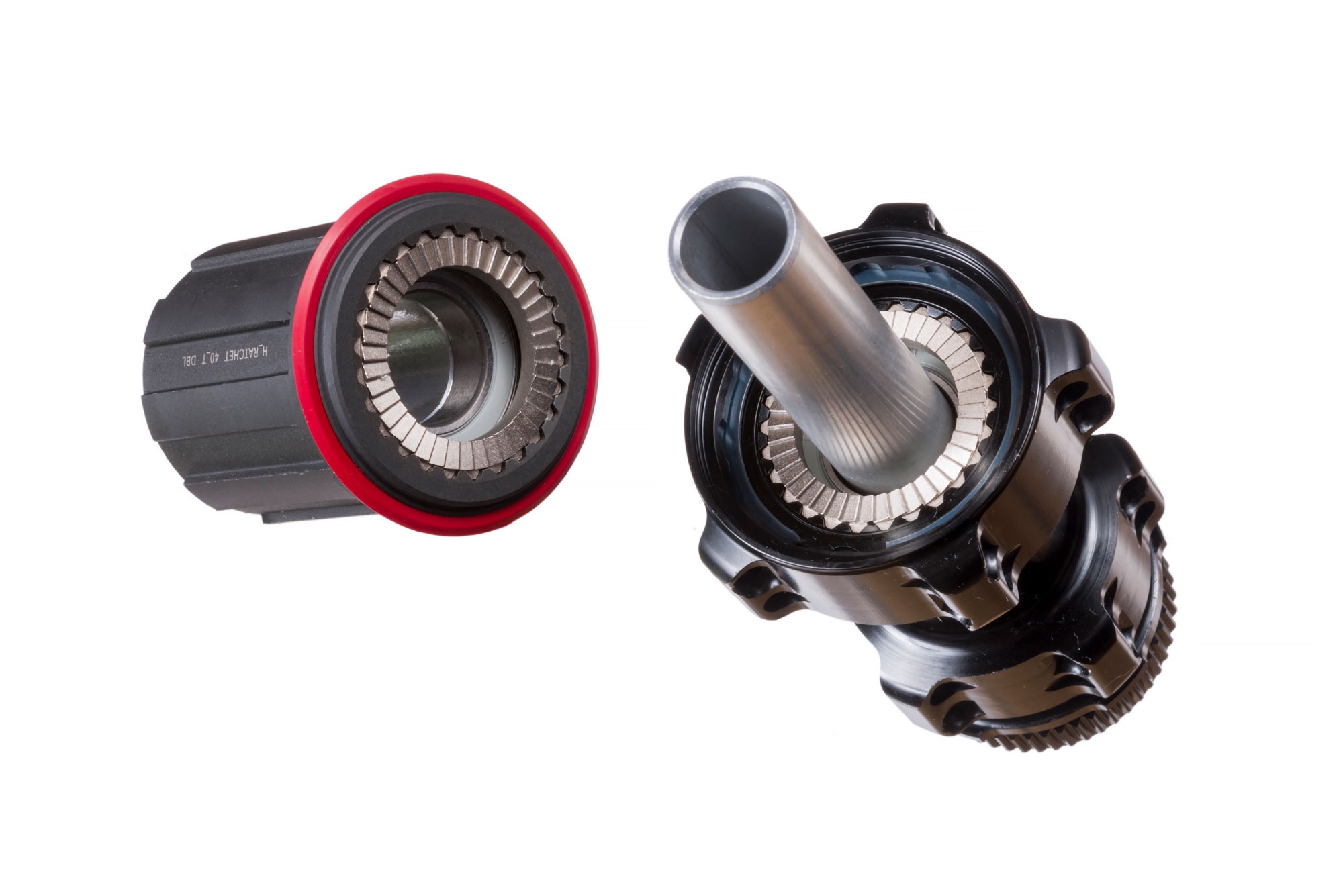
The 40 Carbon Gravel Race wheelset weighs a claimed 1431g, and retails for £1,099/$1,399, while the Dynamo wheelset comes in at 1834g for the set, and will hit the shelves at £1,489/$1,849.
For more information, check out the Hunt Wheels website.

Thank you for reading 20 articles this month* Join now for unlimited access
Enjoy your first month for just £1 / $1 / €1
*Read 5 free articles per month without a subscription

Join now for unlimited access
Try first month for just £1 / $1 / €1
Get The Leadout Newsletter
The latest race content, interviews, features, reviews and expert buying guides, direct to your inbox!

Joe is Cycling Weekly's tech writer. He's always had a love for bikes, since first riding a two wheeled steed before the age of four. Years down the line, Joe began racing at 16, and enjoyed great experiences internationally, racing in Italy, Spain and Belgium to name a few locations. Always interested in tech, Joe even piloted his Frankenstein hill climb bike to a Junior National Title in 2018. After taking a step back from elite level racing in April 2022, Joe joined our team as a freelancer, before becoming Tech Writer in May 2023.
-
 'I'll take a top 10, that's alright in the end' - Fred Wright finishes best of British at Paris-Roubaix
'I'll take a top 10, that's alright in the end' - Fred Wright finishes best of British at Paris-RoubaixBahrain-Victorious rider came back from a mechanical on the Arenberg to place ninth
By Adam Becket Published
-
 'This is the furthest ride I've actually ever done' - Matthew Brennan lights up Paris-Roubaix at 19 years old
'This is the furthest ride I've actually ever done' - Matthew Brennan lights up Paris-Roubaix at 19 years oldThe day's youngest rider reflects on 'killer' Monument debut
By Tom Davidson Published